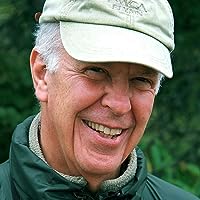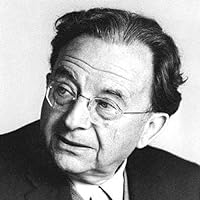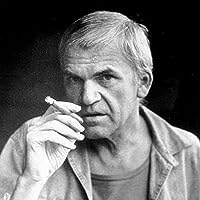The Self Quotes
Quotes tagged as "the-self"
Showing 1-30 of 142

“The peculiar predicament of the present-day self surely came to pass as a consequence of the disappointment of the high expectations of the self as it entered the age of science and technology. Dazzled by the overwhelming credentials of science, the beauty and elegance of the scientific method, the triumph of modern medicine over physical ailments, and the technological transformation of the very world itself, the self finds itself in the end disappointed by the failure of science and technique in those very sectors of life which had been its main source of ordinary satisfaction in past ages.
As John Cheever said, the main emotion of the adult Northeastern American who has had all the advantages of wealth, education, and culture is disappointment.
Work is disappointing. In spite of all the talk about making work more creative and self-fulfilling, most people hate their jobs, and with good reason. Most work in modern technological societies is intolerably dull and repetitive.
Marriage and family life are disappointing. Even among defenders of traditional family values, e.g., Christians and Jews, a certain dreariness must be inferred, if only from the average time of TV viewing. Dreary as TV is, it is evidently not as dreary as Mom talking to Dad or the kids talking to either.
School is disappointing. If science is exciting and art is exhilarating, the schools and universities have achieved the not inconsiderable feat of rendering both dull. As every scientist and poet knows, one discovers both vocations in spite of, not because of, school. It takes years to recover from the stupor of being taught Shakespeare in English Lit and Wheatstone's bridge in Physics.
Politics is disappointing. Most young people turn their backs on politics, not because of the lack of excitement of politics as it is practiced, but because of the shallowness, venality, and image-making as these are perceived through the media--one of the technology's greatest achievements.
The churches are disappointing, even for most believers. If Christ brings us new life, it is all the more remarkable that the church, the bearer of this good news, should be among the most dispirited institutions of the age. The alternatives to the institutional churches are even more grossly disappointing, from TV evangelists with their blown-dry hairdos to California cults led by prosperous gurus ignored in India but embraced in La Jolla.
Social life is disappointing. The very franticness of attempts to reestablish community and festival, by partying, by groups, by club, by touristy Mardi Gras, is the best evidence of the loss of true community and festival and of the loneliness of self, stranded as it is as an unspeakable consciousness in a world from which it perceives itself as somehow estranged, stranded even within its own body, with which it sees no clear connection.
But there remains the one unquestioned benefit of science: the longer and healthier life made possible by modern medicine, the shorter work-hours made possible by technology, hence what is perceived as the one certain reward of dreary life of home and the marketplace: recreation.
Recreation and good physical health appear to be the only ambivalent benefits of the technological revolution.”
― Lost in the Cosmos: The Last Self-Help Book
As John Cheever said, the main emotion of the adult Northeastern American who has had all the advantages of wealth, education, and culture is disappointment.
Work is disappointing. In spite of all the talk about making work more creative and self-fulfilling, most people hate their jobs, and with good reason. Most work in modern technological societies is intolerably dull and repetitive.
Marriage and family life are disappointing. Even among defenders of traditional family values, e.g., Christians and Jews, a certain dreariness must be inferred, if only from the average time of TV viewing. Dreary as TV is, it is evidently not as dreary as Mom talking to Dad or the kids talking to either.
School is disappointing. If science is exciting and art is exhilarating, the schools and universities have achieved the not inconsiderable feat of rendering both dull. As every scientist and poet knows, one discovers both vocations in spite of, not because of, school. It takes years to recover from the stupor of being taught Shakespeare in English Lit and Wheatstone's bridge in Physics.
Politics is disappointing. Most young people turn their backs on politics, not because of the lack of excitement of politics as it is practiced, but because of the shallowness, venality, and image-making as these are perceived through the media--one of the technology's greatest achievements.
The churches are disappointing, even for most believers. If Christ brings us new life, it is all the more remarkable that the church, the bearer of this good news, should be among the most dispirited institutions of the age. The alternatives to the institutional churches are even more grossly disappointing, from TV evangelists with their blown-dry hairdos to California cults led by prosperous gurus ignored in India but embraced in La Jolla.
Social life is disappointing. The very franticness of attempts to reestablish community and festival, by partying, by groups, by club, by touristy Mardi Gras, is the best evidence of the loss of true community and festival and of the loneliness of self, stranded as it is as an unspeakable consciousness in a world from which it perceives itself as somehow estranged, stranded even within its own body, with which it sees no clear connection.
But there remains the one unquestioned benefit of science: the longer and healthier life made possible by modern medicine, the shorter work-hours made possible by technology, hence what is perceived as the one certain reward of dreary life of home and the marketplace: recreation.
Recreation and good physical health appear to be the only ambivalent benefits of the technological revolution.”
― Lost in the Cosmos: The Last Self-Help Book

“Self-care is never a selfish act - it is simply good stewardship of the only gift I have, the gift I was put on earth to offer others. Anytime we can listen to true self and give the care it requires, we do it not only for ourselves, but for the many others whose lives we touch.”
― Let Your Life Speak: Listening for the Voice of Vocation
― Let Your Life Speak: Listening for the Voice of Vocation

“The frightened individual seeks for somebody or something to tie his self to; he cannot bear to be his own individual self any longer, and he tries frantically to get rid of it and to feel security again by the elimination of this burden: the self.”
― Escape from Freedom
― Escape from Freedom

“Those dreaming of the perfect match are outnumbered by those who don't really want it at all, though perhaps they can't admit it. After all, our culture makes individual freedom, autonomy and fulfillment the very highest values, and thoughtful people know deep down that any love relationship at all means the loss of all three. You can say, 'I want someone who will accept me just as I am,' but in your heart of hearts you know that you are not perfect, that there are plenty of things about you that need to be changed, and that anyone who gets to know you up close and personal will want to change them.”
― The Meaning of Marriage: Facing the Complexities of Commitment with the Wisdom of God
― The Meaning of Marriage: Facing the Complexities of Commitment with the Wisdom of God

“To rest was to receive all aspects of the world without judgment. A bath in the sea, a fuck with a soldier who never knew your name. Tenderness toward the unknown and anonymous, which was tenderness to the self.”
― The English Patient
― The English Patient

“In Ephesians 5, Paul shows us that even on earth Jesus did not use his power to oppress us but sacrificed everything to bring us into union with him. And this takes us beyond the philosophical to the personal and the practical. If God had the gospel of Jesus's salvation in mind when he established marriage, then marriage only 'works' to the degree that approximates the pattern of God's self-giving love in Christ.”
― The Meaning of Marriage: Facing the Complexities of Commitment with the Wisdom of God
― The Meaning of Marriage: Facing the Complexities of Commitment with the Wisdom of God

“There are three basic problems: how a mind can know the world of nature, how it is possible for one mind to know another, and how it is possible to know the contents of our own minds without resort to observation or evidence. It is a mistake, I shall urge, to suppose that these questions can be collapsed into two, or taken into isolation.”
―
―

“In a sense who you are has always been a story that you told to yourself. Now your self is a story that you tell to others.”
― Paradise Tales: and Other Stories
― Paradise Tales: and Other Stories

“Bacon's portraits are an interrogation on the limits of the self. Up to what degree of distortion does an individual still remain himself? To what degree of distortion does a beloved person still remain a beloved person? For how long does a cherished face growing remote through illness, through madness, through hatred, through death still remain recognizable? Where is the border beyond which a self ceases to be a self?”
― Encounter
― Encounter

“I get up. There is a white hole in the wall, a mirror. It is a trap. I know I am going to let myself be caught in it. I have. The grey thing appears in the mirror. I go over and look at it, I can no longer get away. It is the reflection of my face. Often in these lost days I study it. I can understand nothing of this face. The faces of others have some sense, some direction. Not mine. I cannot even decide whether it is handsome or ugly. I think it is ugly because I have been told so. But it doesn't strike me. At heart, I am even shocked that anyone can attribute qualities of this kind to it, as if you called a clod of earth or a block of stone beautiful or ugly.”
― Nausea
― Nausea

“Yet how can we distinguish ‘The Self’ from ‘The Other,’ when we are The Other, to other people’s Self?”
― FAITH, In Stories That Change
― FAITH, In Stories That Change

“We may think our past is behind us. Yet, sometimes it is blatantly in our face. Moments, seemingly lost, become inextricably intertwined with consciousness in the Here and Now.”
― Still Moving: a memoir
― Still Moving: a memoir

“For there we sit surrounded by objects which enforce the memories of our own experience... But when the door shuts on us, all that vanishes. The shell-like covering which our souls have excreted to house themselves, to make for themselves a shape distinct from others, is broken, and there is left of all these wrinkles and roughness a central pearl of perceptiveness, an enormous eye. How beautiful a street is in winter!”
―
―

“I was independent now and beginning to find the presence of other people irksome, and I felt that in the end I would have to speak only with myself, that my own best friend and companion would be that other self of mine, that teacher inside me with whom I was beginning to talk more and more. It may also have been because of everything I learned from the professor, who outdid himself in insults, because no coachman cursed his horses the way this professor of French literature and aesthetics cursed us.”
― I Served the King of England
― I Served the King of England

“The unmooring
of the wrists is absolutely out of
the question: I've learned all I need
to know about stillness. In these bird
bones, there is no noise anymore
that couldn't pass for music.”
― So, Stranger
of the wrists is absolutely out of
the question: I've learned all I need
to know about stillness. In these bird
bones, there is no noise anymore
that couldn't pass for music.”
― So, Stranger

“One's thinking about me makes me feel this self; one's not thinking about me leaves me in this self that exceeds me."-"At least disappear in this thought.”
― The Step Not Beyond
― The Step Not Beyond

“We may still have time to shape the trajectory of a bright future, to sow the future, but time is useless without a clear perception and understanding of the nature of the human being, the self, and the relationship dynamics in human society and life on this planet and in the universe.”
― Shine
― Shine

“Every experience lived presents a mirror in which to see yourself, every single one.”
― FAITH, In Stories That Change
― FAITH, In Stories That Change

“How to honor and purify your the Self, speak the truth, respect others, and spread love and harmony.”
―
―

“To conclude: time doesn’t pass. (I hope the reader is now convinced!)
Well, what does pass, then? I shall argue that it is the conscious awareness of the fleeting self that changes from moment to moment. The misconception that time flows or passes can be traced back to the tacit assumption of a conserved self. It is natural for people to think that ‘they’ endure from moment to moment while the world changes because ‘time flows’. But as Alice remarked in Lewis Carroll’s story, ‘It’s no use going back to yesterday, because I was a different person then.’ Alice was right: ‘you’ are not the same today as you were yesterday. To be sure, there is a very strong correlation – a lot of mutual information, to get technical about it – between today’s you and yesterday’s you – a thread of information made up of memories and beliefs and desires and attitudes and other things that usually change only slowly, creating an impression of continuity. But continuity is not conservation. There are future yous correlated with (that is, observing) future states of the world, and past yous correlated with (observing) past states of the world. At each moment, the you appropriate to that world-state interprets the correlation with that state as ‘now’. It is indeed ‘now’ for ‘that you’ at ‘that time’. That’s all!
The flow-of-time phenomenon reveals ‘the self’ as a slowly evolving complex pattern of stored information that can be accessed at later times and provide an informational template against which fresh perceptions can be matched. The illusion of temporal flow stems from the inevitable slight mismatches.”
― The Demon in the Machine: How Hidden Webs of Information Are Solving the Mystery of Life
Well, what does pass, then? I shall argue that it is the conscious awareness of the fleeting self that changes from moment to moment. The misconception that time flows or passes can be traced back to the tacit assumption of a conserved self. It is natural for people to think that ‘they’ endure from moment to moment while the world changes because ‘time flows’. But as Alice remarked in Lewis Carroll’s story, ‘It’s no use going back to yesterday, because I was a different person then.’ Alice was right: ‘you’ are not the same today as you were yesterday. To be sure, there is a very strong correlation – a lot of mutual information, to get technical about it – between today’s you and yesterday’s you – a thread of information made up of memories and beliefs and desires and attitudes and other things that usually change only slowly, creating an impression of continuity. But continuity is not conservation. There are future yous correlated with (that is, observing) future states of the world, and past yous correlated with (observing) past states of the world. At each moment, the you appropriate to that world-state interprets the correlation with that state as ‘now’. It is indeed ‘now’ for ‘that you’ at ‘that time’. That’s all!
The flow-of-time phenomenon reveals ‘the self’ as a slowly evolving complex pattern of stored information that can be accessed at later times and provide an informational template against which fresh perceptions can be matched. The illusion of temporal flow stems from the inevitable slight mismatches.”
― The Demon in the Machine: How Hidden Webs of Information Are Solving the Mystery of Life

“... For the first Cynics probably did not fight in any battles, and they certainly condemned war as another instance of the idiocy of custom (nomos). Critiques of war surface as early as Homer's Achilles; there is a strong deprecation of war in both Herodotus and intellectual communities like the Academy and Lyceum. In their idealism, the Cynics made such critiques far more radical. For, according to them, why would one fight a war? If it were for the sake of wealth or honor, then what are wealth and honor? True wealth is self-sufficiency, not the coin and plunder that contemporary mercenaries covet. Honor is but a word, a "mere scutcheon;' and the Cynics will have none of it. The feckless wars of the late fifth and fourth centuries could only deepen this sense of disillusion: now Athens, now Sparta, now Thebes, now Jason of Pherae, now Philip, now Antigonus, now Seleucus, now some other king is in the ascendant, each contending furiously for the hegemony and spot of distinction. Yet, in the end, all this ambition comes to nothing, for all its objects are subject to the caprices of Tuche; in the end, even Alexander is just a wanderer with his shadow. It is more honest to reject the false absolutes of wealth, honor, and fatherland. Wisdom is seeing through such false notions and freeing oneself from the tyranny of customary language and thought-patterns. The true absolute is the self and in the self, all other values are recovered.”
― The Greek Praise of Poverty: Origins of Ancient Cynicism
― The Greek Praise of Poverty: Origins of Ancient Cynicism
“The soul is that which provides the metaphysical energy to fulfil one’s purpose.”
― The 7 Laws of Quantum Power
― The 7 Laws of Quantum Power

“But it is not possible that I should give myself...My being, my me-ness, is unique and indivisible. To sell the use of myself for the enjoyment of another is one thing; I might even offer freely, out of gratitude or in the expectation of pleasure - and pleasure alone is my expectation from the young American. But the essence of myself may not be given or taken, or what would there be left of me?”
― Nights at the Circus
― Nights at the Circus

“Excessive individuality plagues the foundations of every institution there is in the world, and the only way to stop it is through a deeper understanding of others and ourselves. It is the willingness to accept that there is value in helping others and having empathy for the plight of people.”
― The Why Of Life: Why We Live Without Purpose and How to Find Meaning in a Pointless Life
― The Why Of Life: Why We Live Without Purpose and How to Find Meaning in a Pointless Life

“The individual is born good. However, our society is not. This seemingly paradoxical phenomenon is due to the fact that societal norms reward those who are 'selficated', the habitual or normalized mindset to practice selfishness. In other words, selfication is the process by which an individual is habituated into a selfish mode of existence.”
― The Selficated Society: Why We Are Depressed in the Modern Age and How You Can Break Free from Suffering to Live a Life Worthwhile
― The Selficated Society: Why We Are Depressed in the Modern Age and How You Can Break Free from Suffering to Live a Life Worthwhile

“We are selficated to the extent that alternatives prove irrational and normalcy is the temptation to believe there is no other way.”
― The Selficated Society: Why We Are Depressed in the Modern Age and How You Can Break Free from Suffering to Live a Life Worthwhile
― The Selficated Society: Why We Are Depressed in the Modern Age and How You Can Break Free from Suffering to Live a Life Worthwhile

“Selfishness is the way the few grow stronger and the majority grow weaker. When everyone is selfish, no one wins. There will be fewer people who gain power, but for the majority from which that power stems, there will be nothing left to exploit and extract, and that is the dystopian endgame of Capitalism. The process of exploitation is the very element that fuels the cogs of money, and selfication worsens it.”
― The Selficated Society: Why We Are Depressed in the Modern Age and How You Can Break Free from Suffering to Live a Life Worthwhile
― The Selficated Society: Why We Are Depressed in the Modern Age and How You Can Break Free from Suffering to Live a Life Worthwhile

“I have referred to the air of drama which meets you everywhere in the pages of Sainte-Beuve. He sometimes gets the credit for having dramatized the situation. I wonder, was it he who dramatized the situation or was it the people who were actors in the story? And in particular, was it not Mother Angelique? That great woman was not without her faults; Bremond (who compares her unfavourably throughout with her sister Agnes) writes of her imperiousness, her prodigious freedom in passing judgements on her neighbour; there was no dealing with a woman who was at once up in the clouds and scrupulous. 1 But it is not of her faults that I would write here; they were personal to herself What is more important, it seems to me, is a single weakness which she contrived to hand on to her spiritual children. She was incurably self-conscious; she was always dramatizing situations. She herself said that the object of humiliations was to destroy self and my own will, and the I and the my; St. Cyran, Pascal, Nicole did the same. Of their supernatural achievements it is not for us to judge; but as a matter of plain earthly fact it seems clear that no one of the four ever got rid of that self-consciousness which makes you see yourself out of the comer of your eye at every turn in life.”
― Enthusiasm: A Chapter in the History of Religion
― Enthusiasm: A Chapter in the History of Religion

“All art is a self-portrait. Even if you do a painting of someone else. Art helps us find ourselves.”
― Lie like an artist: Communicate successfully by focusing on essential truths
― Lie like an artist: Communicate successfully by focusing on essential truths
All Quotes
|
My Quotes
|
Add A Quote
Browse By Tag
- Love Quotes 97k
- Life Quotes 75.5k
- Inspirational Quotes 72.5k
- Humor Quotes 43.5k
- Philosophy Quotes 29.5k
- Inspirational Quotes Quotes 27k
- God Quotes 26k
- Truth Quotes 23.5k
- Wisdom Quotes 23.5k
- Romance Quotes 23k
- Poetry Quotes 22k
- Death Quotes 20k
- Happiness Quotes 18.5k
- Life Lessons Quotes 18.5k
- Hope Quotes 18k
- Faith Quotes 18k
- Quotes Quotes 16.5k
- Inspiration Quotes 16.5k
- Spirituality Quotes 15k
- Religion Quotes 15k
- Motivational Quotes 15k
- Writing Quotes 14.5k
- Relationships Quotes 14.5k
- Life Quotes Quotes 14k
- Love Quotes Quotes 13.5k
- Success Quotes 13.5k
- Time Quotes 12.5k
- Motivation Quotes 12k
- Science Quotes 11.5k
- Knowledge Quotes 11k

